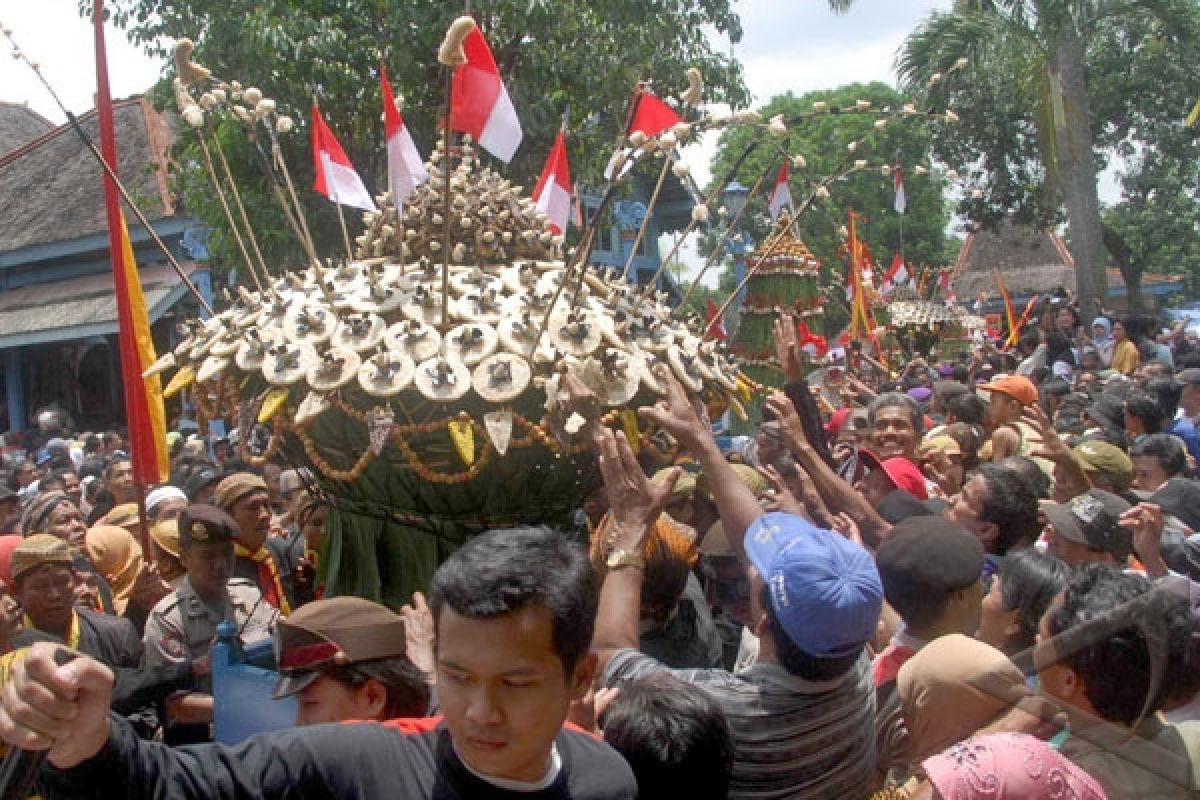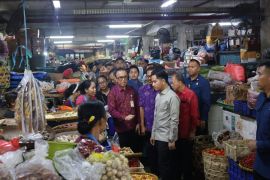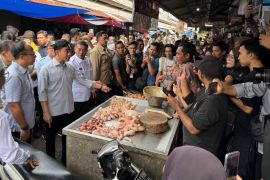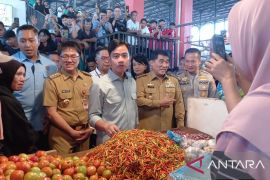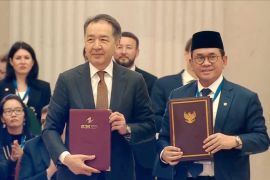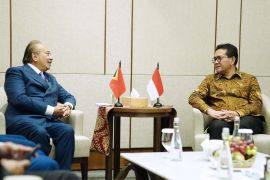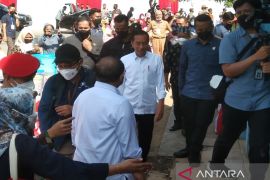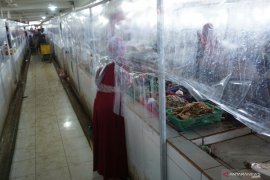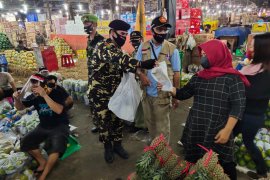In the city with outstanding historical and cultural heritage and the center of Mataram Dynasty from 1575-1640, the local government will continue to improve the concept and management of traditional markets to back the tourists who visit the place for pleasure.
With several thousand-year-old temples of the ninth century by the dynasty of Syailendra, Yogyakarta also has beautiful natural panorama with green rice fields cover the suburban areas with a background of volcanic Mount Merapi.
The city, in which the people live in peace with typical Javanese hospitality, has numerous traditional markets where the exchange of goods and services take place as a result of buyers and sellers being in contact with one another.
In the modern industrial system, however, the traditional markets in Yogyakarta will not be the places for transaction only but their concept and management will also be developed to support the tourism.
"With a better concept and management, the traditional markets will function not only as the place of transaction but also of recreational fun," Yogyakarta Mayor Herry Zudianto said at Beringharjo market in Yogyakarta over the weekend.
He said the concept and management of traditional markets should at least be the same as that of malls and other shopping centers in the country.
Fauna and Ornamental Plants Market (Pasthy Market) is one of traditional markets in Yogyakarta that has developed its concept and management to become a recreational fun for tourists who will find
sincere smiles and warm greeting in every corner of the city.
"At Pathy Market the visitors will not do the shopping only but they can also stroll through the market while enjoying the atmosphere and feeding their eyes with the animals and ornamental plants being sold there," Herry said.
According to him, similar concept and management had also been developed at Yogyakarta arts and crafts market, called "XT-Square" which would start operating in July this year.
Herry said the government has been committed to developing traditional markets into modern market level in a bid to improve the people`s economy.
Meanwhile, the Association of Traditional Market Managers (Asparindo) spokesman Suhendro said the condition of traditional markets in Yogyakarta was good enough.
"Based on our records, 80 percent of 8,854 traditional markets in Indonesia are not in very good condition but in Yogyakarta they are good enough," Suhenro said.
Therefore he expressed hope that the government would continue to develop the concept and management of traditional markets to support tourism.
While Beringharjo Market`s traders association chairman Ujun Junaedi also expressed hope that Yogyakarta city government would have a high commitment to improving the traditional market development.
Having been functioning as a traditional place since 1758, Beringharjo market is now offering more merchandise, ranging from batik, traditional snacks, Javanese herbs, to Buddha effigy costing hundreds thousands rupiah.
In September last year the World Health Organization (WHO) provided US$2,400 to support a program to improve the sanitary health infrastructure of Argosari traditional market in Gunung Kidul district, Yogyakarta.
Wilfred M Purba, a health ministry official said at the time that the financial assistance was given under a cooperation agreement between the ministry and WHO.
"The program has a non-physical aspect, namely to change the public perception that traditional markets as disorder, untidy, and dirty, and to enable them to compete with modern markets," Wilfred said at the time.
According to Wilfred, the best way to create a healthy traditional market was changing the market stakeholders behavior, namely the behavior of the people selling their goods in the market, the market visitors, the market traders` association and the market management.
He said altering the stakeholders` behavior was important to change the traditional market`s image in addition to the provision of supporting facilities needed to keep the market healthy, clean, neat and pleasant to see, especially by the tourists visiting the area.
Besides, rural tourism in Yogyakarta is also predicted to have good prospects in 2011, Widya Budaya Foundation chairperson Widi Utaminingsih has early this month.
"The rural tourism potential will complement the diversity of tourism attractions in Yogyakarta special province," Widi said, adding that rural tourism in the province should continue to be developed.
Therefore she said both the regional and provincial governments should make every effort to develop the rural tourism potential to attract as many foreign and domestic tourists as possible this year.
"Every rural tourism in Yogyakarta has its own typical atmosphere namely the culture and tradition, arts, as well as natural breathtaking scenery," Widi said.
She added that the Widya Budaya Foundation has a great concern in the field of tourism and cultural development study with a local potential basis.
According to her, each rural tourism has the potential of agriculture, animal husbandry, and art and cultural attractions that could be developed to attract tourists.
She said there were at least 50 villages in Yogyakarta that could be turned into rural tourism with the cooperation from all parties.
(Uu.O001/HAJM/F001/P003)
Reporter: Otniel Tamindael
Editor: Priyambodo RH
Copyright © ANTARA 2011
